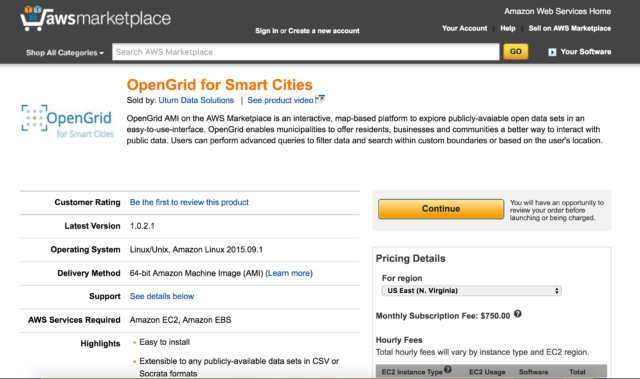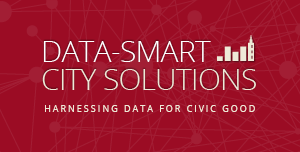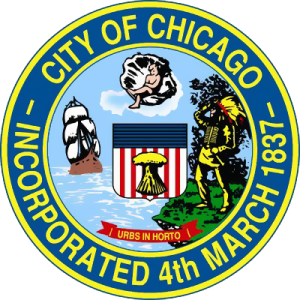 Today our partner, Uturn Data Solutions, launched Open Grid for Smart Cities, with support from Smart Chicago.
Today our partner, Uturn Data Solutions, launched Open Grid for Smart Cities, with support from Smart Chicago.
Here’s a snip from Uturn’s press release:
Today, Uturn Data Solutions, a Chicago-based Amazon Web Services (AWS) Consulting Partner in the AWS Partner Network (APN), in partnership with Smart Chicago Collaborative, launched a new civic tech product in AWS Marketplace: OpenGrid for Smart Cities. Based on an open source project by the City of Chicago, Uturn has optimized and packaged OpenGrid as an Amazon Machine Image (AMI) making it easy for any city to adopt the platform for its own use and quickly deploy it on the AWS Cloud.
OpenGrid AMI on the AWS Marketplace is an interactive, map-based platform to explore publicly-available open data sets in an easy-to-use-interface. OpenGrid enables municipalities to offer residents, businesses and communities a better way to interact with public data. Users can perform advanced queries to filter data and search within custom boundaries or based on the user’s location.
For a monthly subscription fee of $750.00, and by following these setup instructions, you can have a fully-functional map-best website in your city.
Here’s Uturn’s description of this product offering and more information on Open Grid for Smart Cities:
OpenGrid enables municipalities to offer residents, businesses, and communities a better way to explore and interact with publicly-available data about their city or region. It was originally developed for internal use by the City of Chicago as a way to gain situational awareness by viewing information from different city agencies on a single map.
In January 2016, Uturn and Smart Chicago created opengrid.io, the first publicly-accessible version of OpenGrid with data from Chicago’s Open Data Portal. “We wanted to create a new model for open data and civic technology that can be replicated in other cities and organizations,” said Dan O’Neil, Executive Director at Smart Chicago Collaborative, a civic organization devoted to improving residents’ lives in Chicago through technology. “Now, instead of forking code and paying developers for custom implementations, people can just complete a form and put existing software to work immediately.” Funding for the development of opengrid.io was provided by the John D. and Catherine T. MacArthur Foundation and through Smart Chicago’s Developer Resources Program, with support from the John S. and James L. Knight Foundation.
“The code for OpenGrid is available online but adopting open-source solutions still requires in-house expertise and infrastructure to host the application,” said Tom Schenk, Chief Data Officer for the City of Chicago. “The OpenGrid AMI enables any city to start using the platform with a click from AWS Marketplace so they can quickly deploy on a low-cost infrastructure. We hope to move the needle from producing open source software to thinking about how it can be easier to adopt and reuse.”
Increasingly, governments, public institutions, and commercial organizations are looking for ways to be more agile as well as save money. “The AWS Marketplace 1-Click® deployment model gives both commercial and public sector customers the ability to use software running on the cloud, without having to make large capital acquisitions”, said Adam Dillman, Founder and Managing Partner at Uturn Data Solutions. “Uturn Data Solutions will provide technical support including the latest updates and releases to OpenGrid customers as part of their paid subscription. Uturn also offers consulting services to help organizations get the most out of OpenGrid and further expand their data capabilities.”




